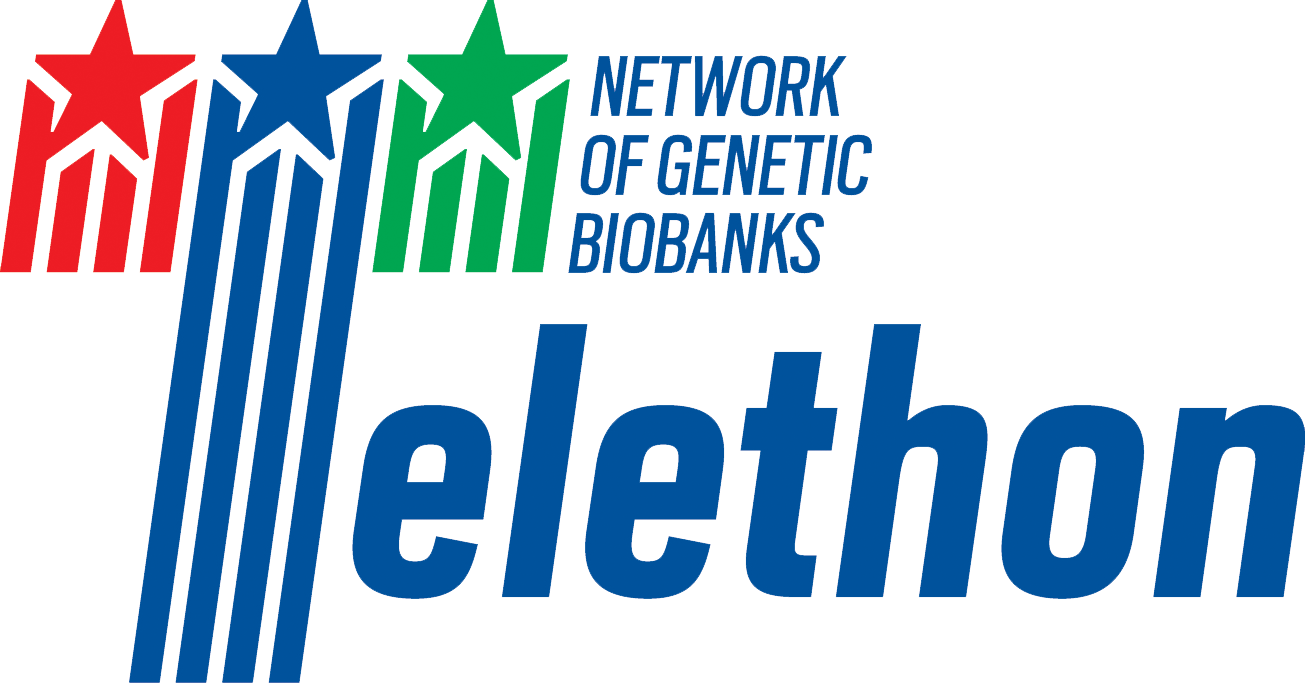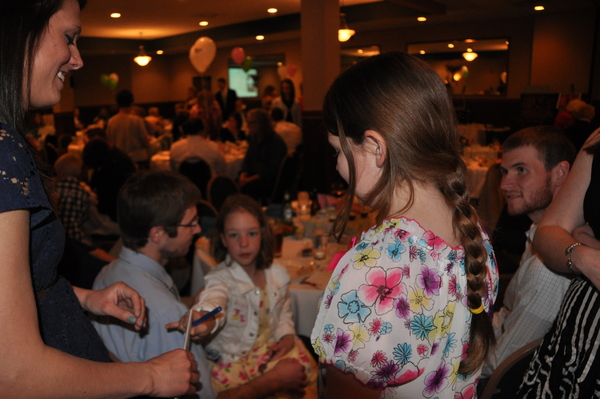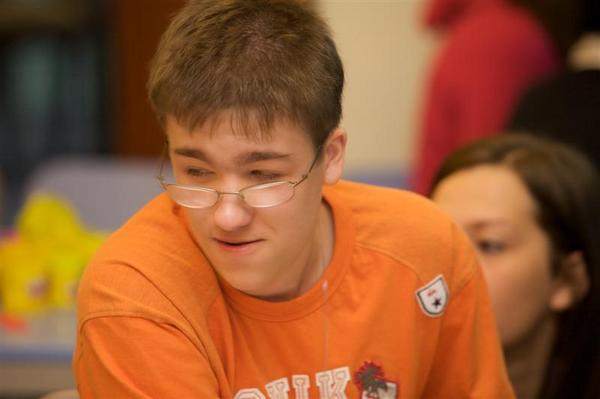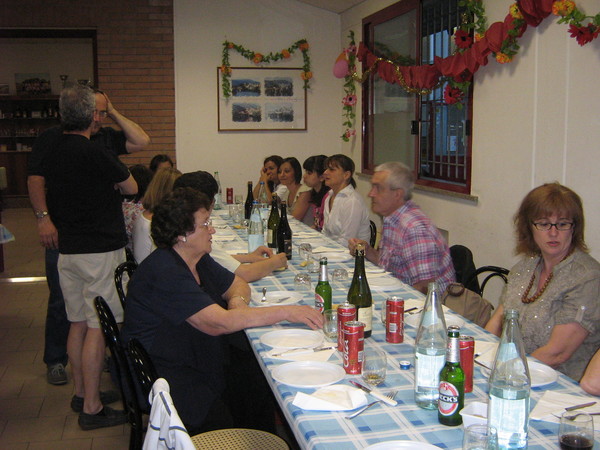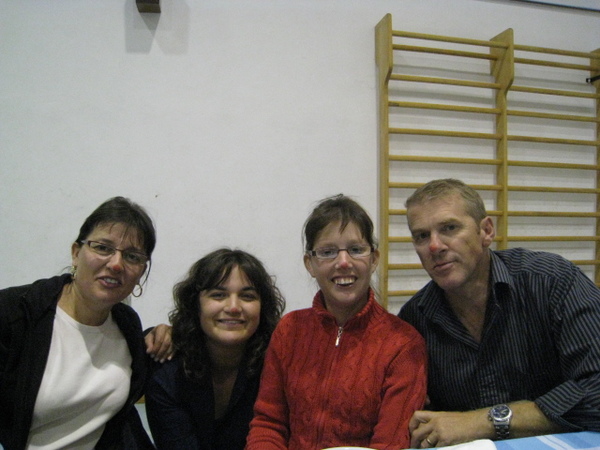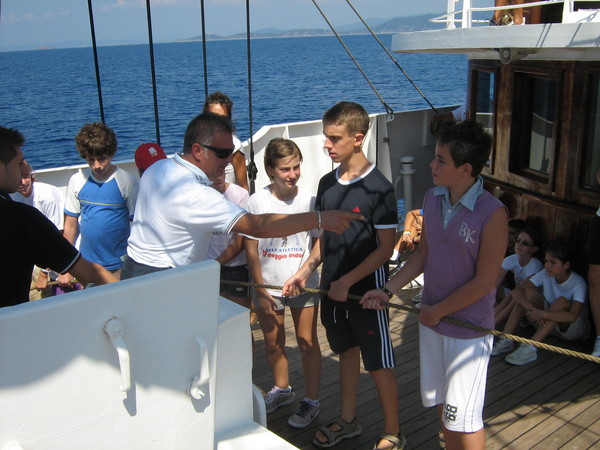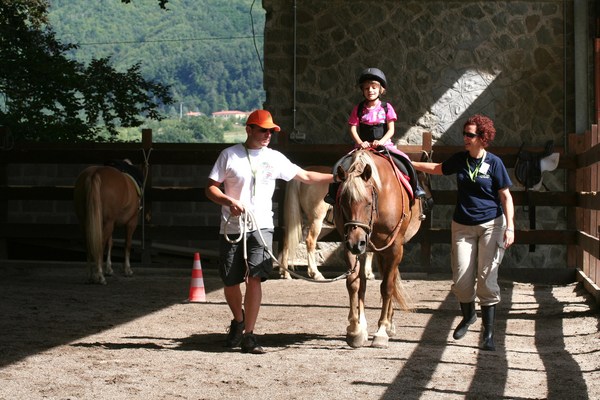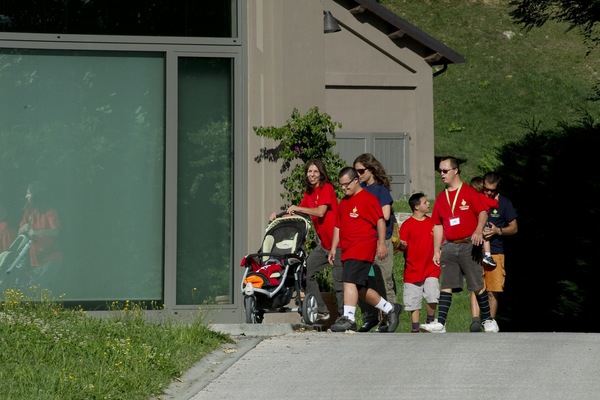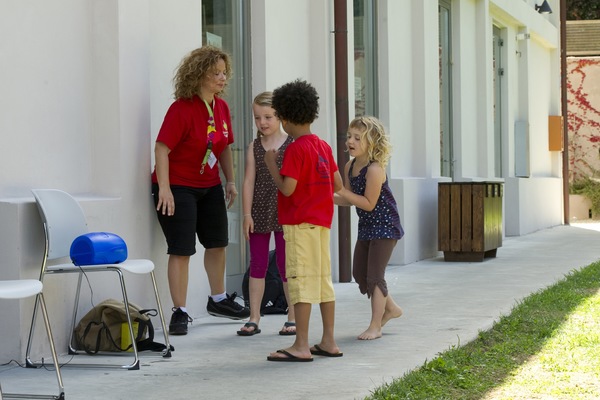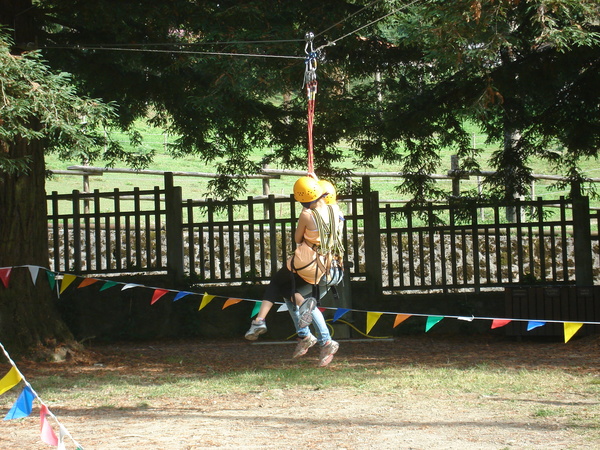STATUTS
ARTICLES OF ASSOCIATION OF SOCIALLY USEFUL NON-PROFIT ORGANISATION (ONLUS)
"RING 14 INTERNATIONAL"
Art. 1
Denomination
An association is hereby established (hereinafter referred to as the "Association") pursuant to article 14 et seq. of the Italian civil code, called "RING 14 INTERNATIONAL – ONLUS".
The Association is a socially useful non-profit organisation ("ONLUS") pursuant to Legislative Decree No. 460 dated 4 December 1997.
The Association uses in its name the qualification of ONLUS as its specific distinguishing mark, and to this purpose such acronym is inserted in each communication and external declaration issued by the Association.
Art. 2
Registered office
The Association has its registered office in Milan.
The Board of Directors may set up or suppress secondary offices.
Art. 3
Term
The term of the Association is perpetual.
Art. 4
Object and purpose
The Association is a non-profit association and pursues exclusively social solidarity aims.
The specific purpose of the Association is to support and encourage, also at international level, medical and scientific research on the genetic disease Ring 14 (the "Ring 14 Disease") and on the other rare neurogenetic diseases arising from aberrations or deletions of the 14 chromosome (the "Correlated Pathologies") and to carry out free assistance, support, safeguard and aid activities in favour of sick people and their family members.
To pursue such goal the Association intends to:
(a) find and build a network of all the families of individuals suffering from the Ring 14 Disease and the Correlated Pathologies so that they may perceive the association as a point of reference, information and assistance;
(b) create the first medical-scientific database on Ring 14 Disease and Correlated Pathologies;
(c) appoint an international scientific committee made up of doctors, researchers, health service operators and consultants interested in dealing with the problems related to the Ring 14 Disease and the Correlated Pathologies;
(d) collaborate on drafting a screening and medical investigation protocol for the Ring 14 Disease and the Correlated Pathologies and to investigate genetic and molecular level correlations between clinical data and genetic heritage;
(e) grant free money disbursements to non-profit organizations operating in the field of scientific research of particular social interest pursuant to and within the limits of art. 10, paragraph 2-bis, of Legislative Decree No. 460/1997;
(f) promote scientific research aimed at advancing knowledge as well as outlining a program suitable for both the cure of the symptoms resulting from the Ring 14 Disease and the Correlated Pathologies and for the development of physical, mental and expressive potentials of individuals suffering from such pathologies;
(g) design and coordinate initiatives aiming at the physical, psychological and social well-being of individuals suffering from the Ring 14 Disease and/or the Correlated Pathologies as well as of their relatives;
(h) cooperate with other national and international associations having similar aims and goals;
For the achievement of such purposes, the Association promotes, distributes and coordinates on an international level the activities of the national no profit organisations that in various capacities deal with the Ring 14 Disease and the Correlated Pathologies and implements development projects integrated with such national entities.
National organizations are guaranteed full autonomy regarding the management, the amendment of the original Articles of Association and appointment of the board of directors as well as their dissolution.
The Association may engage in activities other than those mentioned above if directly connected to them, or incidental in nature or complementary of the same, within the restrictions provided for by Legislative Decree No. 460 dated 4 December 1997, as subsequently amended and integrated.
In particular, among the activities in support of its institutional activities, the Association on an occasional basis intends to:
1. gather and disclose to the public, by any means of communication, any information on the nature of the Ring 14 Disease and the Correlated Pathologies;
2. spread the knowledge in medical, scientific and cultural fields with regards to the Ring 14 Disease and the Correlated Pathologies through conferences, the Internet and via the association’s own publications of information and findings of research in the abovementioned fields;
3. collect funds, through any form or manner permitted by the law, including, by way of example and without any limitation, crowdfunding platforms to raise funds and donations online, to be used to finance institutional activities and, in particular, to support scientific research pursuant to and within the limits of art. 10, paragraph 2-bis, of Legislative Decree No. 460/1997.
Art. 5
Assets
The Association's assets are composed of:
(a) the membership fees and any contributions conferred by way of donations by Members in relation to the needs and operation of the Association;
(b) the assets or contributions in whatever capacity received by the Association from companies, public entities or other natural or legal persons;
(c) any possible donations or legacies;
(d) revenues from manifestations and other activities organized by the Association;
(e) incomes deriving from the Association's assets.
The Board of Directors establishes each year the membership fee due by the Members annually.
Membership to the Association does not entail financing duties or further disbursements apart from the yearly membership fee. However, Members may always make further payments.
Any contribution in favour of the Association is considered as a sinking fund contribution. In no event – neither in case of closure of the Association, or withdrawal or exclusion of a member – shall take place the restitution of contributions to the Association.
Art. 6
Members
The Association is composed of founding members and ordinary members.
The national organizations that have participated to the constitution of the Association are considered founding members.
The Ring 14 organisation set up on a national level, the legal persons, the associations as well as organisations that share the same goals of the Associations and are admitted, on request, by the Board of Directors, are considered ordinary members.
The Board of Directors shall resolve upon the requests for membership within 60 (sixty) days from their receipt.
Members do not assume any liability above the amount of their own fee.
Any membership fee to the Association shall not be transferred nor revaluated.
The adhesion to the Association:
(a) is permanent and shall not be temporary, except for the power of withdrawal, as regulated below;
(b) entails voting rights for the member in the General Meeting:
(i) on the approval and the amendments to the Articles of Association and the regulations, and
(ii) for the appointment of the executive bodies of the Association.
Common rules are in force among members regarding the associative relationship and procedures.
All members have equal rights.
Art. 7
Loss of membership status
The membership status is not assignable and is dissolved by withdrawal, death of the member, dismissal or exclusion.
The member is free to withdraw from the Association at any time by sending written notice of his resignation to the Board of Directors. The withdrawal communicated after the date of approval of the budget shall not exonerate the member from the payment of the fee for the relevant year.
The dismissal is resolved upon by the Board of Directors in the event of loss of the requirements which determined the admission.
The exclusion may be decided by the Board of Directors by justified resolution in the following cases:
(a) delay in payments;
(b) disreputability of the member due to activities prejudicial to the Association or in contrast with the aims of the Association;
(c) non-compliance with the Articles of Association's provisions, regulations, resolutions of the General Meeting or of the Board of Directors.
Exclusion due to delay in payment takes place in relation to the member that has not paid the annual membership fee within the term set by the Board of Directors and, solicited by written notice, has not paid after 10 (ten) days from the receipt of the formal solicitation.
The resolution concerning the exclusion shall be communicated to the excluded member, who may appeal to the General Meeting within 30 (thirty) days from the communication, by registered letter to be sent to the Chairman of the Association.
Art. 8
Bodies of the Association
The bodies of the Association are:
- the General Meeting;
- the Board of Directors;
- the Chairman;
- the Vice-Chairman;
- the Treasurer;
- the International Coordinator.
All offices are without compensation; however, the Board of Directors may entitle the International Coordinator to an annual indemnity within the restrictions provided by article 10, paragraph 6 of the Legislative Decree No. 460 dated 4 December 1997.
The members of the Board of Directors and the International Coordinator shall be entitled to reimbursement of expenses incurred during the execution of their office duties.
Art. 9
General Meeting
The General Meeting is composed of all members having voting rights that are in compliance with the payment of the membership fee.
The General Meeting must be convened at least once a year by 30 April, for the approval of the previous year budget; it may also be convened at any time upon a decision of the Chairman or the Board of Directors or at the request of at least one tenth of the effective members to the Board of Directors.
The General Meeting is chaired by the Chairman or, in case of his/her absence, by other person appointed by the General Meeting.
The General Meeting deliberates on:
(a) the approval of the report of the Board of Directors concerning current and future activities carried out by the Association;
(b) the approval of the estimated budget and the final budget;
(c) the possible distribution of retained earnings or surplus income however called, in compliance with provisions of law and with this Articles of Association;
(d) the appointment of the Board of Directors;
(e) the approval and the amendment to the Articles of Association and the regulations concerning the carrying out of the activities of the Association;
(f) any other subject that the Board of Directors intends to discuss.
The General Meeting is convened by the Chairman by way of written notice (ordinary post, telegram, fax, electronic mail or any other means of communication suitable for delivery notification) addressed to each member within at least 8 (eight) days before the fixed date for the scheduled meeting.
The notice calling the meeting shall indicate the agenda, the place, the date and time of the meeting.
The day of the second calling may also be indicated in the notice, provided that the second meeting will not take place in the same day of the first meeting.
The General Meeting may take place by way of audio and/or videoconference, provided that collective voting protocol, good faith principles and fair treatment of all participants are complied with and provided that it is possible to verify the identity and the legitimation of the participants, as well as to minute, discuss and vote simultaneously on subjects contained in the agenda. The meeting is deemed to be held in the place where the Chairman and the secretary of the meeting are present.
The General Meeting resolutions are recorded in the minutes prepared by the secretary and signed by the Chairman and the same secretary. The minutes are kept by the Chairman in a specific registry, stored in the office of the Association.
Art. 10
Voting rights
The General Meeting is validly formed:
(a) on first call, when at least the absolute majority of all members having voting rights is present or represented;
(b) on second call, regardless of the number of members entitled to vote present in person or by proxy.
The General Meeting resolutions are taken by majority vote, except for the amendments to the Articles of Association which shall be approved with the favorable vote of at least two thirds of the members.
Each member shall be entitled to one vote for all the resolutions of the General Meeting.
Each member may be represented by another member having voting rights through written proxy. No member shall have more than one proxy. Members of the Board of Directors shall not be delegated.
Art. 11
Board of Directors
The Association is managed by a Board of Directors made up of a number of members, ranging from three to nine members. The Board of Directors is appointed for three years and its members may be re-elected.
Each national organization dealing with Ring 14 and Correlated Pathologies and which is associated with the Association, is entitled to appoint one member of the Board of Directors.
If, during the term, one or more members of the Board are absent for any reason, the Board of Directors is entitled to co-opt other members in substitution of the absent members of the Board. Co-opted members will remain in charge until the first following meeting, which may confirm their appointment until the expiry of the term of office of the Board of Directors which co-opted them.
In case of termination of the majority of the members of the Board in charge, the entire Board of Directors is deemed to be dismissed and the remaining members shall convene the General Meeting for the appointment of the new Board of Directors.
The member of the Board is dismissed in case of death, resignation, unjustified absence for more than three consecutive meetings or disreputability of the member due to activities prejudicial to the Association or in contrast with the aims of the Association and only by express resolution of the Board of Directors.
The Board of Directors appoints its own Chairman.
The meetings of the Board of Directors are convened by its Chairman or, failing this, by the Vice-Chairman by way of notice containing the agenda, the place and time of meeting, to be sent at least 8 (eight) days before the scheduled meeting, or, where urgent, at least 2 (two) days in advance, through means of communication suitable to ensure proof of receipt by the recipient (ordinary post, telegram, fax and electronic mail).
The Board of Directors is also convened immediately at the request of at least one third of the members of the Board in charge.
The meetings of the Board of Directors are chaired by the Chairman of the Board or, in case of his/her absence, by the Vice-Chairman.
The meetings of the Board may take place by way of audio and/or videoconference, provided that collective voting protocol, good faith principles and fair treatment of all participants are complied with and provided that it is possible to verify the identity and the legitimation of the participants, as well as to minute, discuss and vote simultaneously on subjects contained in the agenda. The meeting is deemed to be held in the place where the Chairman and the secretary of the meeting are present.
The Board of Directors is validly convened with the presence of the majority of its members in charge. The resolutions are taken by majority of the present Board members of the. In case of tied votes, the vote of the Chairman shall prevail.
The Board of Directors deals with:
- the ordinary and extraordinary management of the Association, except for the powers that the provisions of law or the Articles of Association assign to the General Meeting;
- the promotion and organization of the social activity; and
- the power of use the means at disposal of the Association to fulfil the objectives set out in the present Articles of Association.
In particular, the Board of Directors has the following powers:
(a) preparation of the annual preliminary and final budget and its accompanying reports;
(b) preparation of the programmes and plans for the activities of the Association to be presented yearly to the General Meeting;
(c) determination of the amount of the annual membership fee as well as its payment term.
The Board of Directors may devolve part of its powers to one or more of its members, specifying the economic and temporal limits.
The Board of Directors may establish scientific committees and any other body necessary for the activities of the Association, defining its tasks and possible remunerations, in compliance with article 10, paragraph 6 of the Legislative Decree No. 460 dated 4 December 1997.
The Board of Directors may draft a regulation so as to regulate and organize the activity of the Association, which shall be subject to the General Meeting's approval.
The minutes of the meetings are recorded and signed by the Chairman and the secretary of the meeting and kept by the Chairman of the Board in a dedicated registry.
Art. 12
Chairman and Vice-Chairman
The Chairman is the legal representative of the Association before third parties and in judicial proceedings. The Chairman implements the resolutions of the Board of Directors and exercises the general powers delegated from time to time by the Board of Directors; in the event of the absence or impediment of the Chairman, his tasks shall be carried out by the Vice-Chairman.
The Chairman represents the Association and takes care (directly or by way of proxy) of its institutional, political and economic relationships on both a national and international level.
The Treasurer and the International Coordinator are directly subject to the Chairman's authority.
The Chairman may also be in charge as International Coordinator in the initial phase of the Association.
Art. 13
Treasurer
The Treasurer manages the funds of the Association, drafts each year the proposals for the preliminary budget and the final budget and drafts the report on the economic management of the Association. He/she controls and verifies the relationship between the income statement and the financial resources.
The Chairman ad interim may be in charge as Treasurer.
Art. 14
International Coordinator
The International Coordinator, unless in charge as Chairman or Chairman ad interim, assists the Chairman in the activities of development, public relations, fund raising and organisation of the operational structure.
In particular, the International Coordinator:
- maintains relationships with national Ring 14 organisations worldwide, ensures a constant flow of communication between the Association and the organisations;
- advises and supervises the projects of national Ring 14 organisations, in observance of local autonomies and verifying their coherence with the institutional identity;
- grants the necessary initial support to the newly constituted Ring 14 national associations;
- in agreement and in collaboration with the Treasurer carries out activities of advice in relation to legal, administrative and fiscal profiles, in support of institutional activities carried out by national Ring 14 organisations;
- is responsible for contract management, legal relationships, budget and administrative statement;
- defines the lines of institutional communication of the Association.
Art. 15
Budget
The financial year closes on 31 December. By 30 April the Board of Directors will submit to the General Meeting the final budget in relation to the previous year and by 31 December shall submit the budget in relation to the following year.
Art. 16
Retained earnings and surplus income
Retained earnings and surplus income are compulsorily used for the realization of the institutional activities of the Association or directly related activities.
The Association shall not distribute, also indirectly, retained earnings and surplus income however called as well as funds, allowances or capital during the life of the Association, unless the destination or distribution is compulsory by law or made in favour of other non-profit organizations which, by law, statute or regulation are part of the same and unitary structure.
Art. 17
Internal regulation
The General Meeting may approve, on proposal of the Board of Directors, the internal rules governing:
(a) the management of funds collected by the Association and by the Ring 14 national organizations worldwide, ensuring the means of cooperation and coordination between the Association and the Ring 14 national organisations in the selection of the projects to be financed;
(b) the relationship between the Association and the Ring 14 national organisations in their capacity of responsible in charge of the treatment of personal data (in particular of sensitive data concerning health conditions) of the relevant members, in order to implement the medical-scientific data bank for the Ring 14 Disease and for the Correlated Pathologies;
(c) the utilisation, by the Association and the Ring 14 national organisations, of the trademark and the denomination Ring 14, as well as of any other form of merchandising, taking steps also to regulate the possibility, on behalf of the Association, to prevent the Ring 14 national organisations from using such distinctive labels when these are in contrast with the Association's purpose, as well as to provide for any form of protection of the trademark and name "Ring 14";
(d) the management of the relationships with researchers and the international scientific community;
(e) the organization of meetings between researchers and families as well as between families only; and
(f) the sharing of best practices and local projects which may be transposed to other circumstances.
Art. 18
Dissolution
The Association is dissolved, in accordance with the procedures set out in article 27 of the civil code:
(a) when the assets are not sufficient with respect to the aims;
(b) in relation to other causes pursuant to art. 27 of the civil code.
In the event of dissolution of the Association, due to whatever reason, any residual assets shall be devolved to other socially useful non-profit organisations or for public benefit, after consultation with the supervising authority pursuant to article 3, paragraph 190 of the law no.662 dated 23 December 1996, subject to other destination imposed by law.
Art. 19
Applicable provisions
For anything not expressly provided for in these Articles of association, reference is made to the provisions of the civil code, of the Legislative Decree No. 460 dated 4 December 1997 and to other pertinent law provisions.
Documents
› Statut (150 KB)







